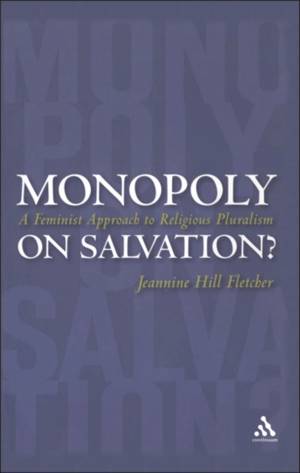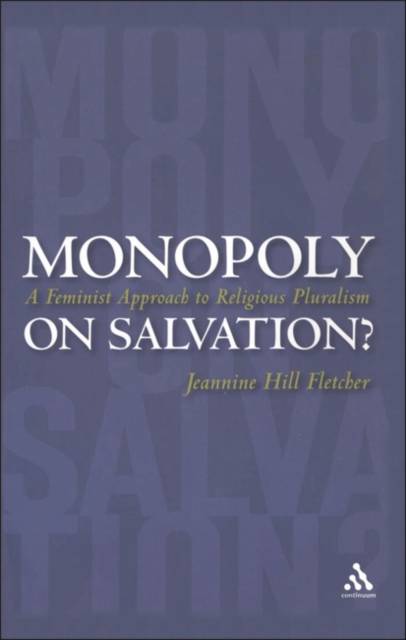
- Retrait gratuit dans votre magasin Club
- 7.000.000 titres dans notre catalogue
- Payer en toute sécurité
- Toujours un magasin près de chez vous
- Retrait gratuit dans votre magasin Club
- 7.000.000 titres dans notre catalogue
- Payer en toute sécurité
- Toujours un magasin près de chez vous
Monopoly on Salvation?
A Feminist Approach to Religious Pluralism
Jeannine Hill Fletcher
Livre broché | Anglais
88,45 €
+ 176 points
Description
In a world where religion often fuels ethnic and racial conflicts, and where passionate allegiance to rival creeds engenders violent antagonism among members of the same family, dwellers in the same neighborhood, citizens of the same country, no one can doubt the need to rethink the universalist claims of temple, church, and mosque.
For the past few decades, Christian theology tended to regard religious difference as a "problem" to be overcome. More recently there has been an effort, however tentative, to view the different religious traditions as rich legacies to be shared by the entire human community. Monopoloy on Salvation? Re-examines missionary history to provide examples of how Christians have engaged across religious boundaries in the past--among them, Paul's letters, the Acts of Thomas, the colonial encounters of Christopher Columbus and Bartolome de las Casas, the missionary engagements of Francis Xavier, Roberto DeNobili, and Matteo Ricci, and modern missions in Africa and India. These representative accounts are seen not only through Christian eyes but also from a perspective of people of other faiths. All this provides the theoretical foundation for a Christian partnership in coequal religious dialogue. But practical resources, as the author shows, are necessary to effectively structure the conversation. A feminist analysis of human identity as multifaceted and intrinsically hybrid provides the insights for engaging across different religious visions without erasing distinctiveness. The culmination of the book is a theology modeled on the life, practice, and witness of Jesus of Nazareth that is open to the many patterns of diverse religions as gifts to humankind.Spécifications
Parties prenantes
- Auteur(s) :
- Editeur:
Contenu
- Nombre de pages :
- 168
- Langue:
- Anglais
Caractéristiques
- EAN:
- 9780826417237
- Date de parution :
- 31-05-05
- Format:
- Livre broché
- Format numérique:
- Trade paperback (VS)
- Dimensions :
- 143 mm x 209 mm
- Poids :
- 217 g







